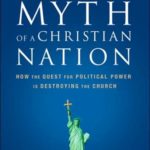We run our website the way we wished the whole internet worked: we provide high quality original content with no ads. We are funded solely by your direct support. Please consider supporting this project.

9 Reasons Faith ≠ Certainty
One of the things that Christians typically believe in and that I’ve struggled with a great deal is the concept of faith. Like most Christians, I once assumed a person’s faith is as strong as that person is certain. And, accordingly, I assumed that doubt is the enemy of faith. That is, after all, how Christians generally talk. This conception of faith raises a number of perfectly legitimate questions—the kind that we are often told not to ask, but I ask them nonetheless. For example, Scripture teaches us that we are saved by faith and that the power of prayer, whether for healing or for some other blessing, is directly connected to a person’s faith. But I’ve always wondered, why would God place a premium on one’s ability to convince oneself that something is true? What is particularly virtuous about one’s ability to push doubt aside and make oneself feel certain?
Through the years, I’ve found 9 reasons why faith is not the same thing as certainty.
- There is nothing virtuous about the ability to make yourself feel certain about things. The more rational a person is, the less they have this ability. The more simple or gullible they are, the better they’ll be. God loves simple and gullible people, but there’s no reason to think that they’re saints! Trying to feel certain your beliefs are right and trying to avoid doubt is irrational and reduces faith to a form of mental gimmickry.
- Having people believe that their salvation and other things—like whether your friend lives or dies—hang upon how certain you feel about things is psychologically torturous and presupposes an ugly, domineering/controlling mental picture of God.
- Certainty-seeking faith looks more like magic than biblical, covenantal faith in that it depends upon doing and believing certain things in order to gain God’s favor and manipulate God to benefit ourselves and others.
- The certainty-seeking model of faith leaves us with an inflexible way of approaching our beliefs and makes us vulnerable to various challenges to our belief system. Since everything is a package deal that we must buy into in order to feel loved, worthwhile, and secure, we cannot afford to think flexibly and therefore are left with a faith that is brittle and easily broken.
- Believing that one’s salvation depends on remaining sufficiently certain about right beliefs can cause people to fear learning things that might make them doubt the rightness of their beliefs. It thus creates a learning phobia that in turn leads many to remain immature in their capacity to objectively, calmly, and lovingly reflect on and debate their beliefs.
- Doubt-shunning faith tends to be hypocritical in that Christians see it as sinful for them to doubt but virtuous for non-Christians to do so.
- Certainty-seeking faith can be dangerous, as it discourages us from seriously questioning our assumptions even when we are asked to engage in questionable behaviors, such as killing people, in the service of our beliefs.
- It’s self-serving and self-deceptive to strive to feel certain while also telling yourself you’re concerned with truth. A concern for believing the truth requires us to take seriously the possibility that our current beliefs are mistaken.
- Finally, and most seriously, trying to convince ourselves that we embrace true beliefs can be idolatrous. When people feel they are loved, have worth, and are secure before God (they are “saved”) because they embrace the right beliefs, they are getting their life from their confidence in their beliefs about God rather from a relationship with God.
—Adapted from Benefit of the Doubt, pages 75-77.
Category: General
Tags: Apologetics, Benefit of the Doubt, Doubt, Faith, Religious Idolatry
Topics: Faith & Doubt
Related Reading

Uncrossed
Did any of you catch SNL this weekend? They did a parody of Tarantino’s DJango Unchained called DJesus Uncrossed. Many were deeply offended by the depiction of Jesus in this, but David R. Henson blogged about how this skit revealed what we’ve already been doing for quite a while as a culture. In his blog…

Jesus: True Myth and True History
Though the Jesus story gives us every reason to believe it is substantially rooted in history, it has a curious, and fascinating, relationship with myth and legend. The story of God coming to earth, being born of a virgin, manifesting a heroic, counter-cultural love toward outcasts, dying for the people who crucified him and then…

The Heresy of “Just War”
Since the time when the Jesus-looking kingdom movement was transformed into the Caesar-looking “militant and triumphant” Church, there has been a tradition of Christians by-passing the enemy-loving, non-violent teachings of the NT and instead appealing to the precedent of divinely-sanctioned nationalism and violence in the OT whenever they felt the need to justify engaging in…

Remembering the Myth During Election Season
Given the current political furor in America right now, we thought we would post an extended quote from Greg’s book The Myth of a Christian Nation. This book was originally a reflection on Christian political engagement during the 2004 election, and how conflating “America” with Christianity is devastating to the mission we’ve been given in the…

The Bible is Infallible NOT Inerrant
While the cruciform understanding (explained here) of the “God-breathed” nature of Scripture is in tension with the way most talk about inerrancy (See previous post on inerrancy), I do not believe it is at all incompatible with what the Church has always sought to express by affirming the “infallibility” the Scripture. The core conviction is that Scripture will…

A Brief Theology of Faith
It is often argued that Hebrews 11:1 provides us with a clear definition of faith. The NIV translates it as, “Now faith is confidence in what we hope for and assurance about what we do not see.” Most of the times when we use different translations of the Bible, the differences between them are about…
